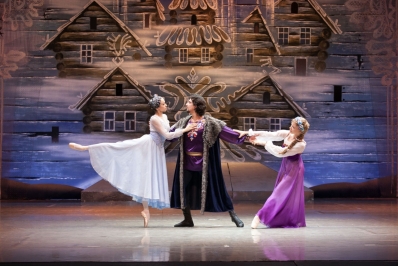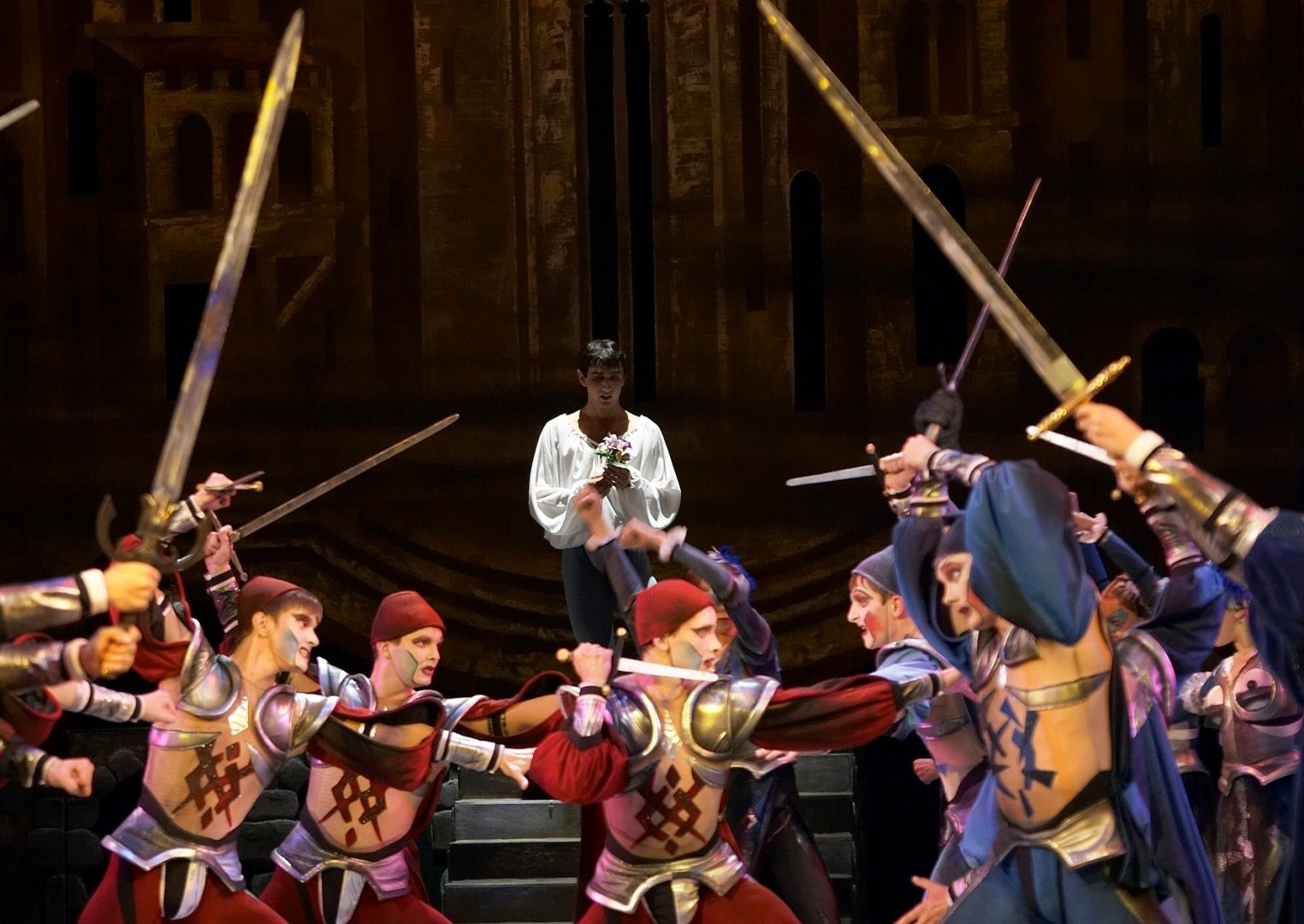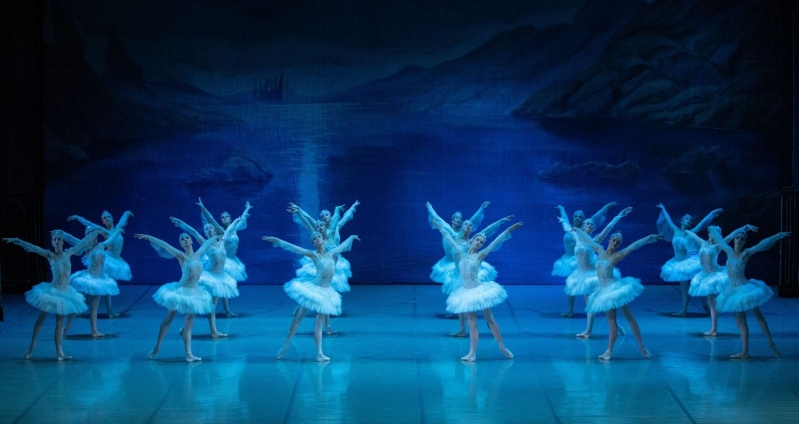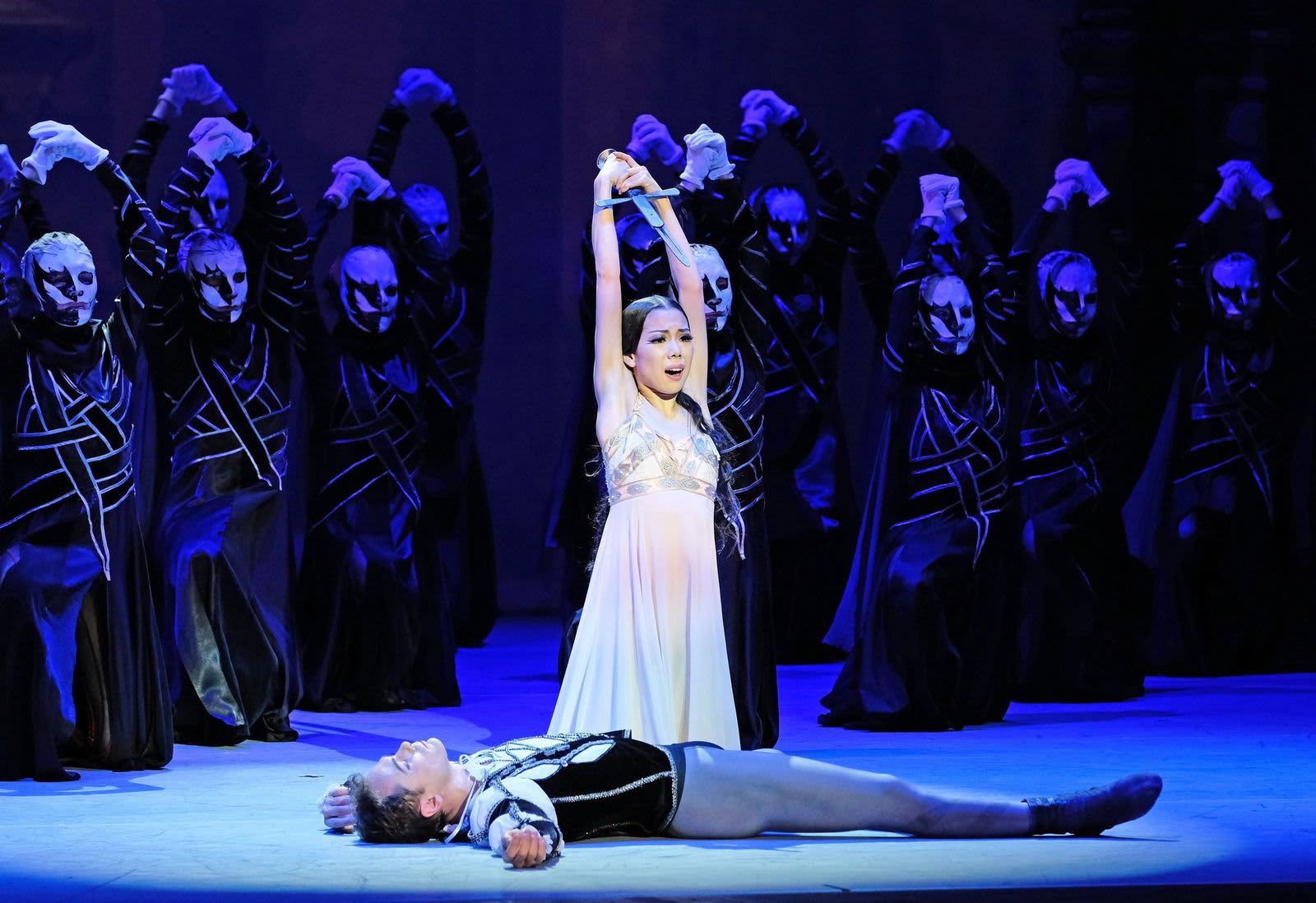Ballet in Russia is something of a national obsession. As part of his cultural revolution in the seventeenth century Peter the Great decreed that it should be accessible to all– as opposed to just the wealthy – and it has formed a critical part of Russia’s identity ever since with Russian ballet companies, theatres, dancers and productions esteemed throughout the world. The Russian State Ballet of Siberia, based in Krasnoyarsk (declared by Chekov to be the most beautiful city in Siberia) is coming to the New Theatre in Oxford this month to perform its world-class renditions of The Snow Maiden, Swan Lake and Romeo and Juliet. We were thrilled to speak with Artistic Director Sergei Bobrov, and Music Director and Chief Conductor, Anatoly Tchepurnoi
How is the tour going?
Bobrov: The tour is going well considering the circumstances when, as we heard, some shows are being cancelled due to the outbreaks of Covid within companies or theatres. We are keeping well and grateful for having been offered and done boosters on Christmas Eve. It was a very hard start in Cardiff though. Wales has got very strict quarantine rules and regulations. They don’t recognize quarantine nothing shorter than ten full days inside the hotel room, meals served to the rooms. This would have been devastating for the dancers, so our promoter arranged our accommodation in Bournemouth where we could leave their rooms after five days and rehearse in the hotel’s conference room, dancers, and orchestra apart. We could have started performing in England after five days of quarantine, but our first venue was in Wales, and we couldn’t arrive to Wales earlier than ten days since our arrival to the UK. At least we could do ballet classes and rehearse in the last five days. Now we look forward to accomplishing the tour.
How do you find the British public (as an audience as opposed to other places you have toured)?
Bobrov: The British audience is quite knowledgeable in what they see on stage. They enjoy a good performance of a particular dance when they applaud during it and at the end of the show or, on the contrary, they keep silent or give a lukewarm polite applause when they don’t appreciate a particular dance or performance. British audience is also generous and forgiving for any accidental mishap.

As the Russian State Ballet of Siberia celebrates two decades since its first UK tour, what are the main ways in which you have seen the world of dance change?
Bobrov: I’ll take our company as an example. We wanted our audience, especially children, to follow performances without the need to read synopsis to understand it. We also wanted the scenery to help to understand each scene when the change of sets was not possible between dance numbers. So, in the last three years we use images projected on the screen to accompany each dance number rather than backdrops in each act. Projections change quickly and the audience follows the action on stage with a better understanding what dancers want to say and where that particular dance takes place. They see that swans are actually on the lake or Drosselmeyer’s magic doll house is really magical appearing and disappearing as by his wand. The effect of the projection is strong and works well.
Looking back, which has been your favourite show?
There were many memorable shows. And again, I would understand that the show had success when the audience didn’t let dancers leave the stage at the end of the show. But sometimes, I wondered why the audience didn’t applaud when all dancers performed really well but then I realized that perhaps audience felt that they missed the sincerity and emotions radiating from the dancers and the whole ensemble. On the following day I would call the dancers and we analyse the performance.
Where did your interest in ballet begin?
Bobrov: My mother took me to see The Nutcracker at the Bolshoi Theatre when I was six and I decided to become a dancer. I wanted to express myself through the movements and emotions as those dancers I saw at my first ballet performance. Then I studied at the choreographic school in Moscow and later became a soloist of the Bolshoi Ballet. In later years I always went to see great dancers such as Vladimir Vasiliev and Maris Liepa on stage. Their performance in Spartacus was always breath-taking.

Is there a lot of pressure when interpreting such iconic, timeless tales?
Bobrov: It’s not that much of a pressure but the responsibility to produce a ballet that would tell the story in a different more expressive way. I try to find different angles of interpretations for the leading couple.
With only the use of body and movement, how does one express such strong emotion to communicate the themes present in these stories?
Bobrov: As I said earlier, the language to interpret characters in the ballet is always through movements but emotions and feelings on stage are equally important. The language of the movements actually exists since the nineteenth century, and I use it in my productions. It is difficult to describe this in an interview but for example a hand on the heart means love and if the dancer extends his hand towards his partner, then it means that he is in love with her. You just need to follow hands of the dancers and you’ll understand what they want to say beyond their dance.
What, in your opinion, is the most romantic story within this tour?
Bobrov: The most romantic story is obviously the story of Odette and Prince in Swan Lake. Love is what Odette finds and it is love for Odette that Prince sacrifices his life in the battle with Evil Rothbart. Tchaikovsky’s music is the most romantic and passionate music in the ballet repertoire.

Apart from the music and dance, what else helps to build your magnificent performances?
Bobrov: My family and my youngest daughter who dreams to become a dancer inspire me.
What can we expect the Russian State Ballet of Siberia in the future?
I’ve restored Cesare Pugni’s 18th century ballet ‘Catarina, a daughter of the bandits’ which premiered in Krasnoyarsk to a great public and critical acclaim. I’m very pleased with the outcome and our Krasnoyarsk State Ballet Theatre is going to present it at the international theatrical festival ‘The Golden Mask’ in Moscow in March 2023. We would like to bring it to England but it may be too complicated due to the opulence and volume of sets.
The Russian State Ballet of Siberia will be at the New Theatre in Oxford between 10 – 12 February performing Snow Maiden, Romeo and Juliet and Swan Lake (matinee and evenign performances)









